Search Articles
Browse Content (p. 141)
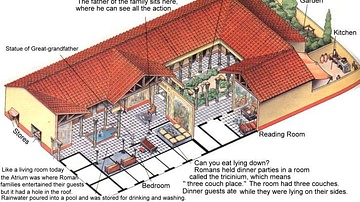
Article
The Roman Domus
The Roman domus was much more than a place of dwelling for a Roman familia. It also served as a place of business and a religious center for worship. The size of a domus could range from a very small house to a luxurious mansion. In some...
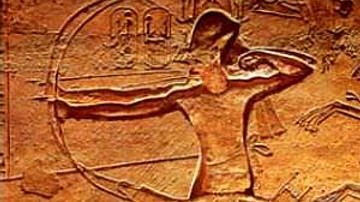
Article
The Battle of Kadesh & the First Peace Treaty
Ramesses II (The Great, 1279-1213 BCE) ruled Egypt for 67 years and, today, the Egyptian landscape still bears testimony to the prosperity of his reign in the many temples and monuments he had built in honor of his conquests and accomplishments...
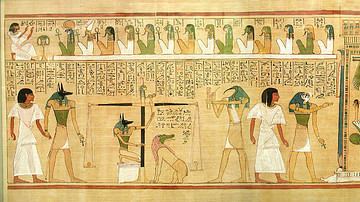
Article
Herodotus on the Egyptians
II:35. The Egyptians in agreement with their climate, which is unlike any other, and with the river, which shows a nature different from all other rivers, established for themselves manners and customs in a way opposite to other men in almost...

Article
Herodotus on Animal Sacrifice in Egypt
II:38. The males of the ox kind they consider to belong to Epaphos, and on account of him they test them in the following manner: If the priest sees one single black hair upon the beast he counts it not clean for sacrifice; and one of the...

Article
St. Augustine: from The Literal Meaning of Genesis
Saint Augustine of Hippo (354-430 CE) most famous for his work Confessions and his City of God, is regarded as one of the Fathers of The Church in the tradition of Catholicism. In this brief essay from his The Literal Meaning of Genesis...

Article
The Brothers Gracchi: The Tribunates of Tiberius & Gaius Gracchus
Tiberius and Gaius Gracchus were a pair of tribunes of the plebs from the 2nd century BCE, who sought to introduce land reform and other populist legislation in ancient Rome. They were both members of the Populares, a group of politicians...
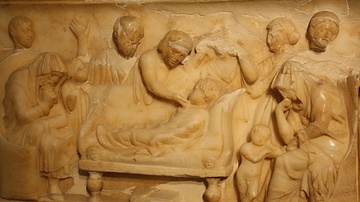
Article
The Roman Funeral
The Roman funeral was a rite of passage that signified the transition between the states of life and death. It was very important to conduct the proper ceremonies and burial in order to avoid having a malicious spirit rising from the underworld...

Article
Boudicca: Queen of the Iceni, Scourge of Rome
Boudicca (died 61 CE) was the Celtic Queen of the Iceni tribe who led a revolt against Roman occupation of what is now East Anglia, England. So charismatic was Boudicca that ancient sources record tribes joining her revolt which would not...
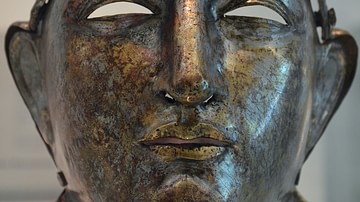
Article
Athletics, Leisure, and Entertainment in Ancient Rome
Although much of ancient Roman life revolved around negotium (work and business), there was also time available for otium (leisure). Ranging from swimming to playing board games to attending theatre performances, athletics and forms of entertainment...
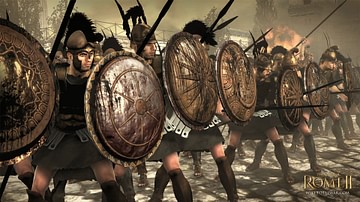
Article
Diodorus Siculus: The Battle of Chaeronia
In the following excerpt from his Library of History, Book XVI, chapter 14, the historian Diodorus Siculus (1st century BCE) chronicles the famous Battle of Chaeronia of 338 BCE, in which Phillip II of Macedon, his son Alexander and their...